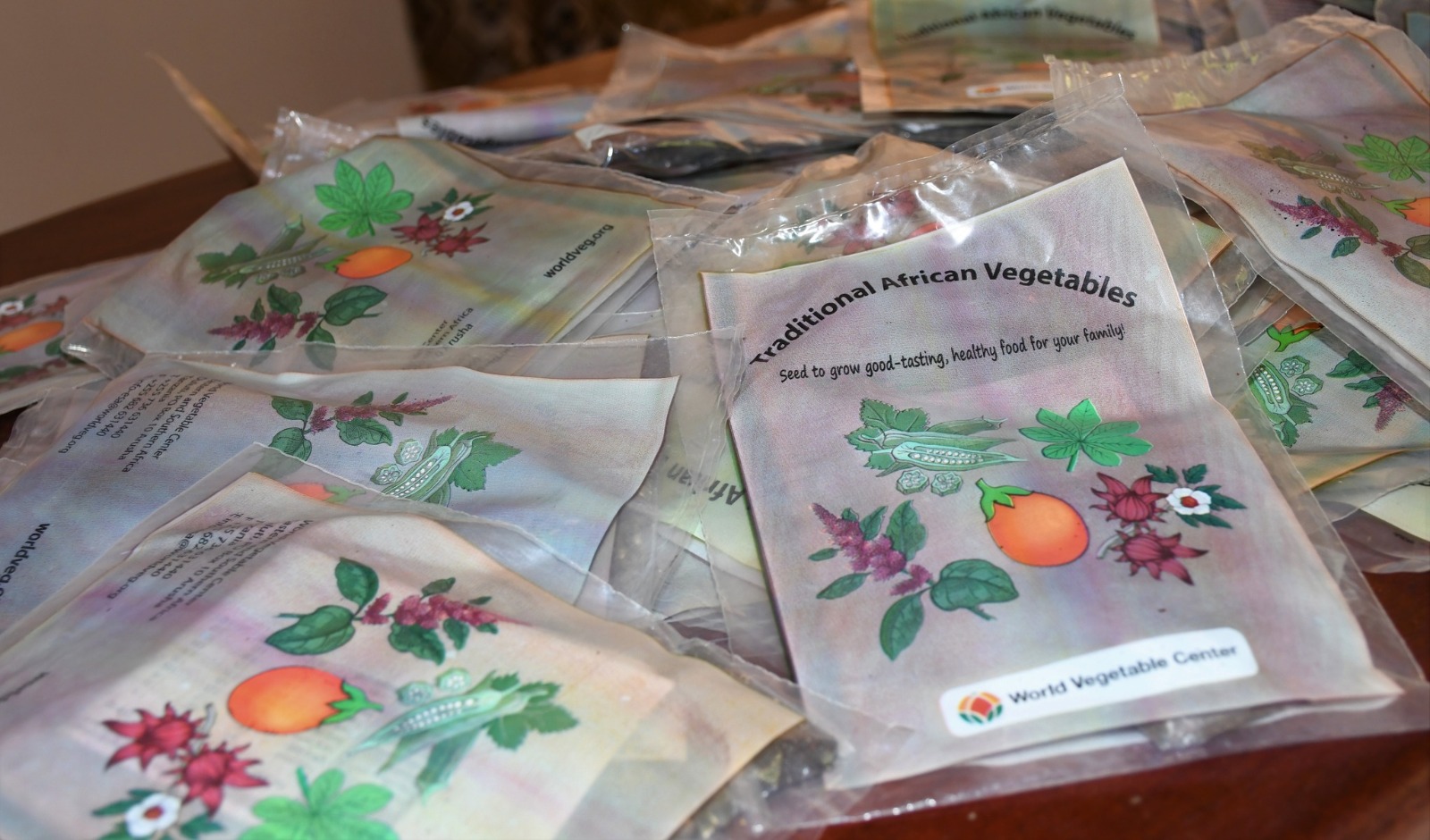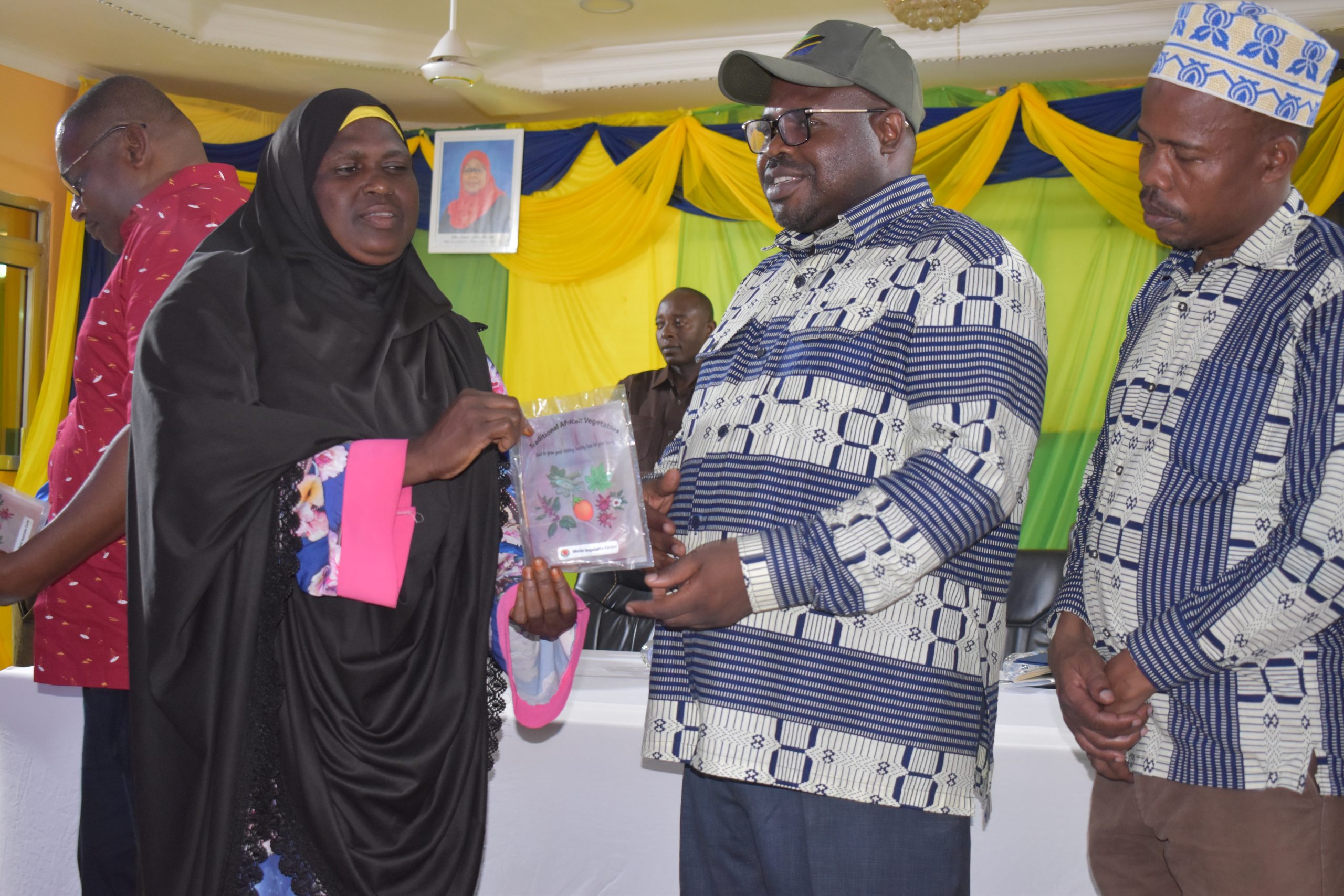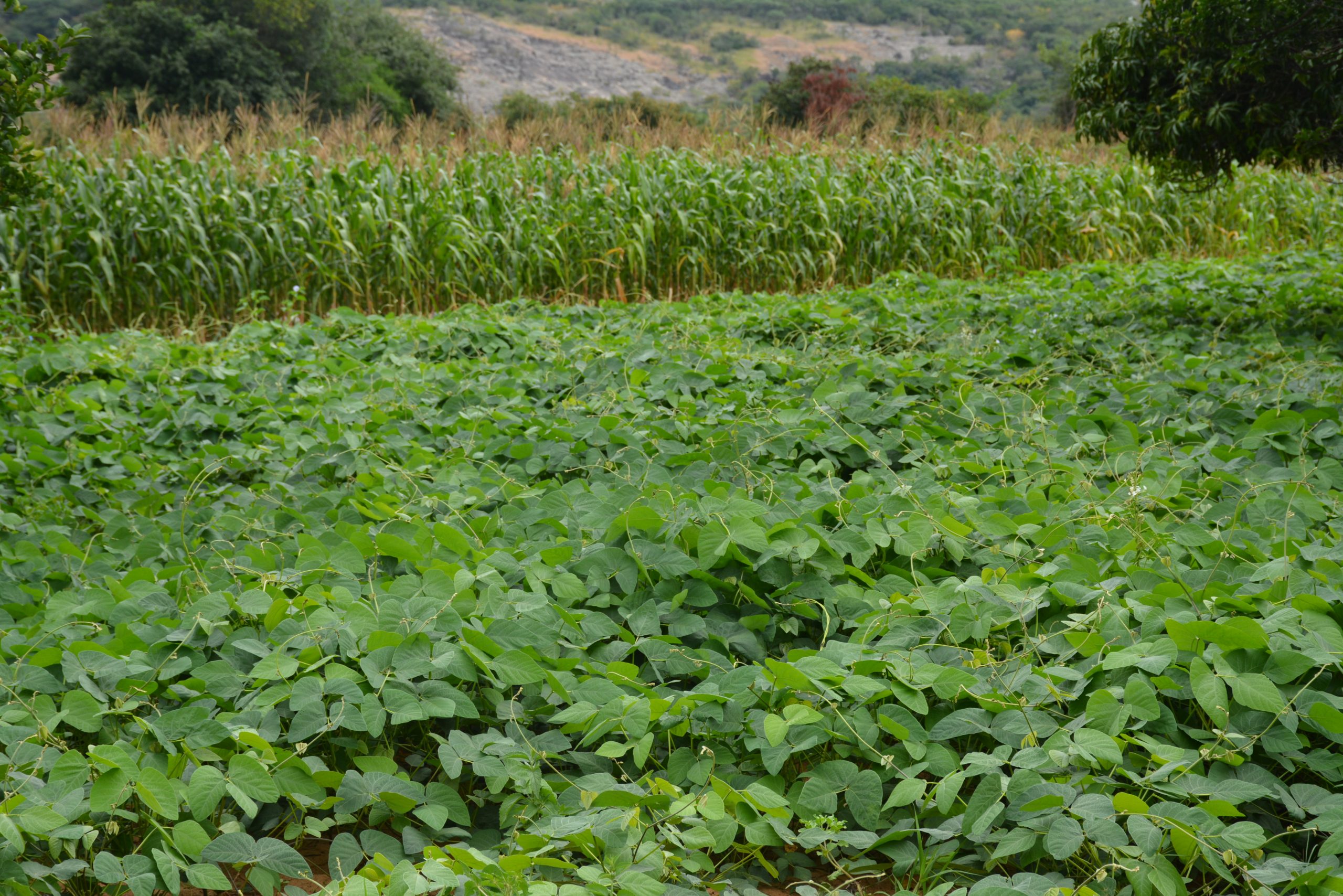Many people on the islands of Zanzibar face food insecurity and nutritional challenges. The Southern Africa Accelerated Innovation Delivery Initiative (AID-I) MasAgro Africa Rapid Delivery Hub, implemented by CIMMYT, has partnered with the World Vegetable Center (WorldVeg) to directly distribute health diet seed kits to vulnerable households, while prioritizing vulnerable groups such as pregnant and lactating mothers and children under five.
The kits contain a diverse selection of nutrient-rich vegetables specifically chosen for their high nutritional value, ensuring optimal health and development.

To date, the partnership has reached an impressive number of households in Zanzibar. Over 1,350 health diet seed kits have been distributed, or one seed kit per household, benefiting approximately 4,050 individuals (considering at least three people per household). These numbers showcase the tangible impact AID-I has made in addressing the root causes of malnutrition and hidden hunger, providing a sustainable pathway towards improved health and a brighter future for Zanzibar.
The World Vegetable Center (WorldVeg) conducts research, builds networks, and carries out training and promotion activities to raise awareness of the role of vegetables for improved health and global poverty alleviation.
“This initiative holds tremendous promise in fostering long-term improvements in food security, nutrition, and overall well-being for the communities in Zanzibar and shows the power of collaboration,” said Kevin Kabunda, CIMMYT lead for the AID-I project.
Seed variety encourages improved nutrition
A key strength of the seed kits lies in their diversity. Each kit comprises a range of seeds for various crops, including legumes and nutrient-rich vegetables. This includes amaranth consumed as leafy and grain, African eggplant, Ethiopian mustard, African nightshade, and cowpea. The combination of these diverse crops ensures a more resilient and nutritious food supply, essential to combating malnutrition and fostering agricultural sustainability in the islands.
The seed kits are tailored to suit the local agroecological conditions, considering the specific needs and preferences of farmers in Zanzibar. This localization approach enhances the adoption of the kits and maximizes their potential impact on food security and dietary diversity.
“The partnership between WorldVeg and CIMMYT has been invaluable in driving the success of this activity in Zanzibar,” said Jeremiah Sigalla, WorldVeg technical lead for the AID-I project in Zanzibar. “By providing farmers with these healthy diet seed kits, we aim to promote the cultivation of diverse crops that are essential for a balanced and nutritious diet and its attendant benefits, particularly among vulnerable communities.”
By raising awareness about the significant benefits of incorporating diverse vegetables into daily diets, the partnership has inspired and encouraged the community to fully embrace the intervention. This collaboration between CIMMYT and WorldVeg is a testament to the potential of collective action, highlighting sustainable solutions and community empowerment as essential elements in combating malnutrition and enhancing overall well-being in Zanzibar.

The Honorable Shamata Shame Khamis, the minister of Agriculture, Irrigation, Natural Resources and Livestock in Zanzibar joined a health diet seed kit distribution event at Michiweni district in Pemba, on June 30, 2023, where he commented that the consumption of nutritious vegetables in Zanzibar is very low, and malnutrition-related cases are increasing because of poor daily diets. He also extended his appreciation to the AID-I project, recognizing that this initiative is not only important but also timely, as it serves to meet the urgent need for promoting and enhancing the availability of nutritious vegetables in Zanzibar.

 Environmental health and biodiversity
Environmental health and biodiversity 